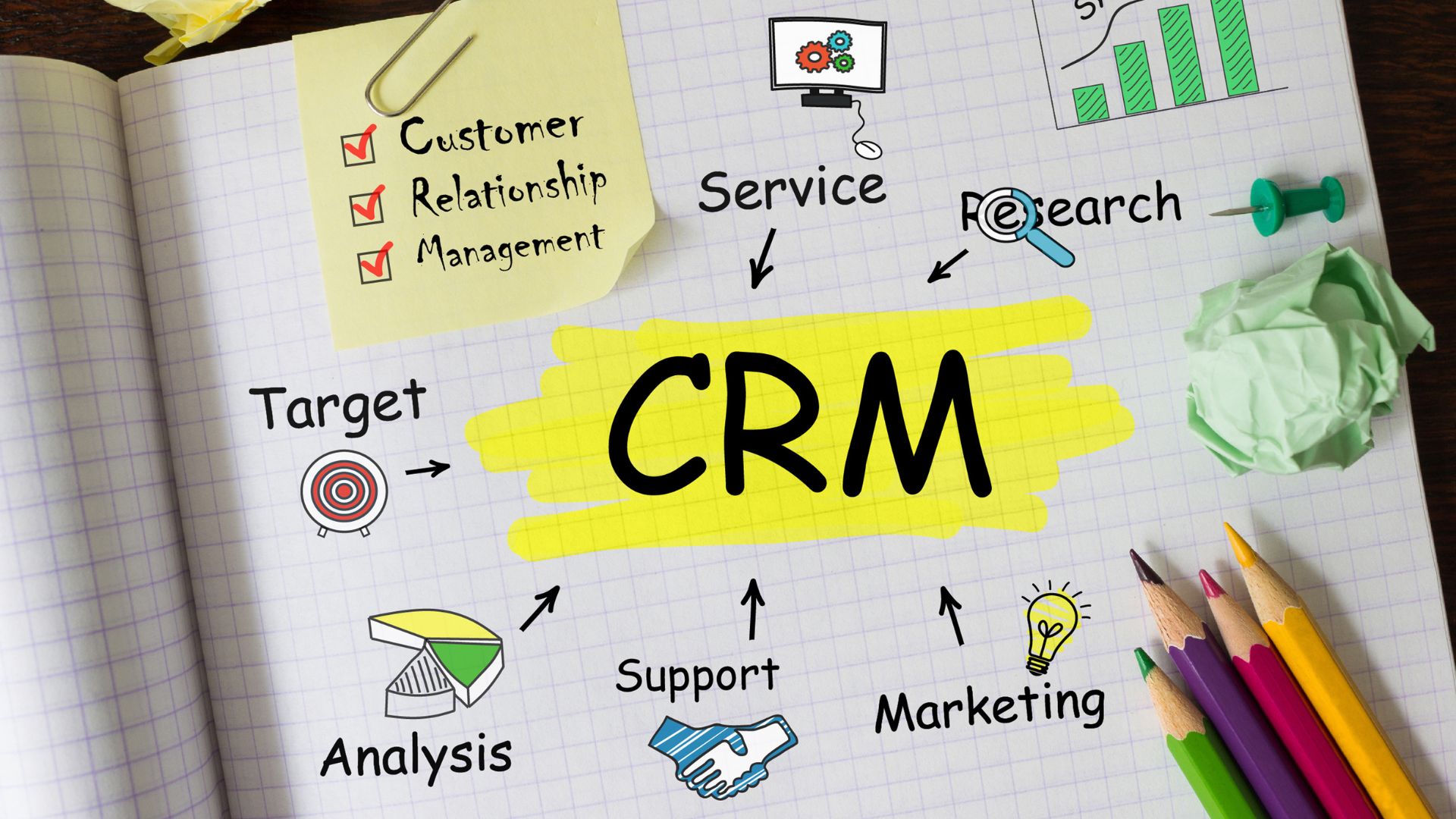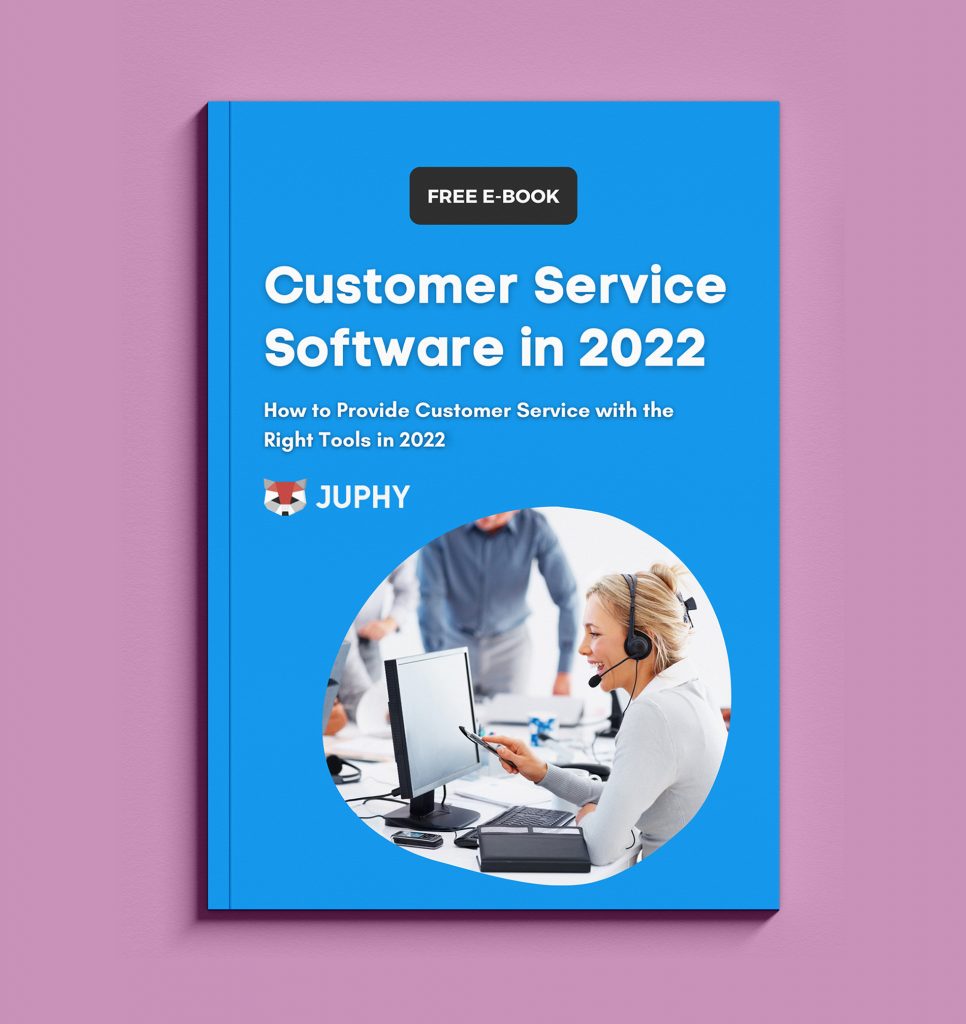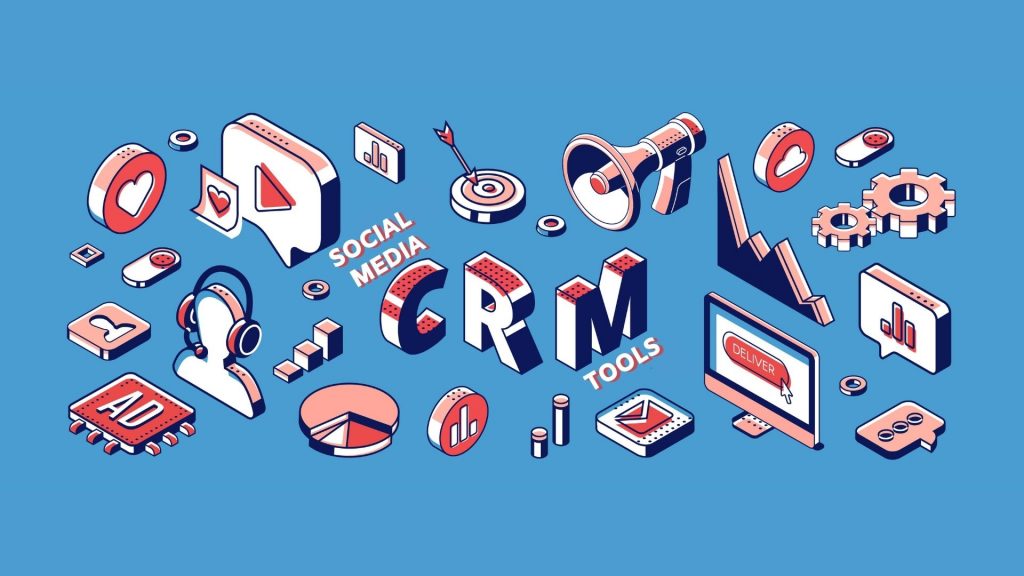Social CRM Guide
Glory-Anna Oshafi
Everyone is talking about it, but what is social CRM?
Social media has become an integral part of our everyday lives, such that it has become a necessary tool for interaction and communication of all kinds between businesses and consumers.
70% of businesses in a survey agree that they rely on social media for engaging with customers, while 80% of consumers expect that companies should interact with them on social media.
This data makes it quite clear that social media is useful in growing an impactful relationship with your customer. What does this mean for you?
It’s simple. You need excellent Customer Relationship Management (CRM) in place to help you leverage the power of improved customer satisfaction and accelerate your brand on social platforms.
That’s why in this article, we’ll be sharing powerful tips and tools to help you build and improve your social CRM strategy in the most effective way possible.

What Is Social CRM?

Social CRM is the process that helps you make your brand easily accessible, be informed about your customers, and proactively engage with them to improve their overall satisfaction.
Social CRM leverages key techniques like social media mining, social media advertising, and social listening to keep up with the rapidly evolving digital world of social networking.
It requires you to plug your social media channels into your existing CRM system so that every team member has access to every record of interaction with existing customers or potential customers, including those that happened on your social media.
This integration of socials and CRM helps employees who manage customer relationships to improve the possibilities of generating leads, closing sales, and building better-personalized relationships with customers, leading to increased business revenue over time.
What Is an Example of a Social CRM?

Social CRM enables companies to collect customer data, interact with customers, and establish loyalty with them.
Let’s check out one example of a functional Social CRM at work:
For instance, a customer leaves a poor review of your product as a casual Tweet on Twitter. Social media monitoring, which is part of a typical social CRM strategy, can help you quickly identify the negative feedback and reach out to the customer to provide a solution or placation for their problem.
This way, you can appease the customer and provide a more satisfactory service, which may change their perception of your brand and rebuild their confidence in you. It also positions you online as a brand that cares about your customers and their experiences.
What Is the Difference Between Traditional CRM and Social CRM?
Social CRM focuses more on customer interactions, while traditional CRM is concerned with how the promotion of the product or service is managed. While traditional CRM focuses on collecting data, streamlining processes, tracking sales, and providing reports, Social CRM focuses on communication forms with customers. Unlike traditional CRM, Social CRM attempts to connect with customers and potential customers. Besides, customer acquisition and loyalty are quicker nowadays thanks to social media platforms. Therefore, social CRM is based on customer relationships for those who want to communicate their wants and needs through social media.
Benefits of Social CRM
Today, 4.7 billion people use social platforms. The fact that this number is increasing over time shows that our new living space will be social media. Social channels, which are the new address of marketers, are seen as an opportunity not to be late for promotions and support of products and services. At this point, social CRM provides the following benefits:
- Improves Brand Reputation
Your brand reputation is about how good your customer relationships are. The communication bond between you and your customers affects your reputation. Nowadays, customers tend to share their experiences, good or bad, on social platforms. Customers want to be heard and seen. Therefore, you can satisfy your customers with the proper feedback. Social CRMs enable you to do social listening and respond to bad comments instantly while contributing to the positive trajectory of brand reputation with rewards for good comments and praises.
- Helps You Build Better Relationships With Customers
Social CRM analyzes all data from social platforms and provides a general navigation process between categorized data. That paves the way for better observation. In addition, it allows you to reach categories related to your customer relationships by focusing on your target audience, potential customers, and demographics. In this way, you can better understand your customers and target audience.

- Helps You Develop Quicker Customer Service
Social CRM manages the customer service process as a whole. Agents communicate with customers and help you improve your social listening service, enabling you to provide better customer service. If you receive high social media engagement, their notifications can also be managed via social CRM. With categorized notifications, you can provide faster and easier customer service.
- Facilitates the Management of Social Media Platforms
The proliferation and value of social media channels are increasing. You can increase your brand awareness through social channels, photo and video sharing, messaging, content creation, and mini blogs. Social CRM helps you manage multiple social platforms, helping you create content, and set up sales marketing.
Tips to Consider When Implementing Social CRM in Your Business
Social CRM helps you create and distribute content about your product or service on the platforms or the internet. There’re some points to consider when implementing social CRM:
- Define Your Goals
As a business, the Social CRM system you want to implement needs to fit with your business culture, goals, and strategies. In case of any conflict, you may need to make changes to your strategic moves. Identifying the specific problems that the system should focus on depends on how the system will affect the process. You should think about your goals in a way that integrates with the CRM system.
- Work With a Social CRM Platform
Investing in the right social CRM platform affects the success of your strategies. Therefore, you should acquire a CRM system that can integrate all your platforms. Displaying messages and notifications from many different platforms on a single unified dashboard should be among your chosen platform features. Choosing a CRM model with performance reports and automation to provide adequate customer experience and service will be the right choice to realize your goals.
- Practice Social Listening
Social listening is vital to contributing data in CRM. This way, you can listen to your audience on your brand, products, or services and strategically move on. It can also help you follow up with potential customers or prevent pain points. In addition, you can use the knowledge you gain from social listening for team collaboration.
- Choose Social Media Platforms for Your Brand
You need to decide which social platforms you want to be present on. You may want to protect your social presence by being active on many platforms; however, being present on platforms where your business is at the forefront provides much better results. Which platforms your customers and target audience use more and from which platforms they try to communicate with you are also essential factors in platform choice.
- Define Your Rules
Rules are critical to ensure discipline and cooperation. There’re many different scenarios in customer interactions. But if you have a rules policy, everyone knows when and where to intervene. So make sure you have rules. There should also be guidelines on how teams respond to customer interactions since better customer relations are achieved through better training. This way, the social CRM process will ensure a more precise and accurate collaboration.
What Are the Benefits of a Good Social CRM Strategy?
Social CRM has a ton of benefits for your business. With so many people connected to the internet daily, the potential that social media provides companies looking to connect with their customers is vast.
These are the benefits of an awesome social CRM strategy:
- You can deliver exceptional customer support to your customers on the social platforms they already use.
- Enables you to engage better with customers and potential customers in real time, deepening your relationship and building trust.
- Improves customer satisfaction because you can quickly resolve queries and complaints through social media monitoring.
- You get quick access to customers who are voluntary brand advocates or assist other customers in need online so you can reward them or offer them juicy discounts for their efforts and loyalty.
- It helps you build better exposure on the social platforms where your customers already spend most of their time.
- It improves your team’s productivity and collaboration. It also reduces time spent on repetitive tasks, helping them attend to work that matters and meet marketing goals faster.
6 Tips & Tricks for Building a Successful Social CRM Strategy

By combining social media and CRM, you’re already creating a super solid foundation for increasing brand revenue and meeting many marketing goals. However, to make the most of these two forces and guarantee success, you must ensure that your social CRM strategy is on target.
Here are six essential tips for building a successful social CRM strategy:
1. Invest in the Best Social and CRM Tools
The backbone of a successful social CRM strategy is working with the right tools. A social media analytics tool that houses an array of relevant social media management features, paired with the right CRM tool, is what you need.
Why?
The combination of these tools helps your team stay engaged on the social media platforms that are relevant to you and your customers and gives them access to essential customer data that helps enhance customer relationships.

There are many different types of customer service software out there. Finding the right one can be hard, but we’re here to help. Download our free ebook now!
Your social management tool must be easily integrable with your existing CRM tool. Even better, you can get a tool comprising social management and CRM features for better productivity.
These tools help you monitor conversations and interactions about your brand, as well as create reports and collect data on past customer purchases or inquiries to help your team follow up on potential leads and close sales quickly and easily.
2. Direct Your Focus to Relevant Social Networks

Every type of business has its ideal social network, teeming with potential and current customers. It’s crucial not to squander time and resources on platforms that don’t align with your audience’s preferences. Similarly, while you refine your social strategy with potent CRM tools, consider the unique benefits of specialized systems, such as CRM for nonprofits, if you’re operating in that space. These platforms are specifically designed to meet the distinct challenges nonprofit organizations encounter, fostering stronger, more meaningful connections with donors and stakeholders.
Take, for example, a brand that sells eco-friendly children’s clothing. Funneling marketing resources into LinkedIn would likely miss the mark. Instead, visually rich platforms like Instagram or Pinterest are the go-to choices, where vibrant photos of your sustainable outfits can capture the attention of an audience keen on online shopping. This principle of strategic alignment—choosing the right tools and platforms based on your specific audience and goals—is fundamental to maximizing the impact of your digital marketing efforts.”
Similarly, it’s also essential to keep up with the migratory trends and shifts that happen on social media. Is there a new social media platform on the block that all your customers seem to gravitate towards?
Then you may also need to set up shop there so you can retain your customers wherever they may be.
3. Keep an Eye on Interactions and Engagements
A key part of your social CRM is to keep track of what’s going on with your brand, your competition, and your industry in the online space. With the help of social monitoring tools, stay up-to-date with interactions and engagements such as comments, reviews, mentions, tweets, etc., directed towards your brand.
Respond quickly to customers who have directed their feedback, questions, and comments at you or even just mentioned your brand in passing. Provide helpful answers to customers needing more information about your business.
Also, find out what customers are saying about your competition so that you can remain competitive and updated. Active engagement like this pushes your brand forward and is a good way to create loyal brand ambassadors, generate potential leads, and increase sales.
4. Monitor Your Social Analytics and Take Action as Needed
Social CRM tools provide relevant data you can monitor to make informed decisions about a customer or your brand. Identify customers that are about to churn from your data reports and take active steps to bring them back from your data reports.
Look out for customers that only need a little push to make a purchase and provide the right incentives to help them make the purchase decision. Also, reach out to existing customers with recommendations based on their purchase history, or give them new product options.
Leverage all the necessary data resources to turn customers to repeat customers or enhance customer conversion.
5. Build a Proactive Social Media-Customer Service Team
Your social media management team is your first responder team regarding social CRM. 93% of consumers say an excellent customer experience is enough to convince them to make a repeat purchase.
Knowing how effective customer service can be, skimping on your team can be detrimental to your business. Equip them with the right tools and materials they’ll need to provide the best customer service experience to new and existing customers.
They should proactively and cohesively attend to customers to create a good impression on them to keep them coming back.
6. Help Customers Know How They Can Reach You
You must remember that social CRM is only a part of a whole and larger CRM strategy. This means you should not restrict your customer relationship management to only social media.
Some types of customer challenges or queries may not be easily solvable on social media channels.
Your team may need to hop on calls with different clients or move to email for better communication. Always provide alternative communication platforms for direct support and let them know when they can expect a reply.
If social media is your primary customer assistance method, ensure that this information is visible there.
Top Brands with Effective Social CRM Strategy
Social CRM strategy means managing customer interactions in the best way possible with the data obtained by integrating social media platforms with CRM software. By acquiring Social CRM tools, you can track interactions on the social media platforms you use and set up a strategy by creating response rules. You can examine the brands that have established a Social CRM strategy in the examples below.
Providing quick solutions on social media is among the significant advantages of CRM. It has become possible to improve the customer experience by simply tweeting a few pieces of information without private conversations. Short and quick responses ensure a good customer experience for Spotify users. For example, a person tweets to “@spotifycares,” a particular account for Spotify’s customer support, regarding a problem they’re experiencing, and Spotify quickly initiates a solution process. In this way, Spotify proves how effective its customer management is.
Amazon conducts its communications with customers on different accounts like Spotify. Amazon’s “@AmazonHelp” and “@awscloud” Twitter accounts are for customers to contact directly for technical support. Through these accounts, Amazon tries to provide solutions by communicating directly with the customer who has a problem. This way, it responds directly to support requests with a short response time between many mentions and notifications. As in the example below, a person tells @AmazonHelp about the problem they are experiencing and requests a solution. Meanwhile, Amazon starts a more detailed process with a quick and short response at the pain point.
Top Social CRM Tool in the Market — Juphy

As we’ve already highlighted, social CRM tools are essential for a successful social CRM strategy. That’s why you need a tool like Juphy to help you make the best of your strategy using all the top social CRM features it offers.
See how Juphy’s social CRM features benefit your business:
- Enhanced team collaboration
Juphy helps you enhance your social management-cum-customer support team’s collaborativeness. The tool allows employees to log in to a collaborative workspace enabling them to work in sync on customer inquiries in real time. They never have to miss any vital customer information again!
- Unified social inbox
No need to log into all your social media accounts individually again. Juphy’s single sign-in allows your team to access all your social media accounts from one unified dashboard. Keep up with mentions, DMs, comments, and much more easily without going back and forth on different platforms. You can even reply to and hide comments right from Juphy.
- Insightful performance reports
Want to know how well your team is smashing customer requests and queries? Juphy provides insightful reports on your team’s performance. It also highlights areas where your social media KPIs are doing well or need improvement in customer satisfaction so that you can provide a better customer experience.
- Accurate keyword monitoring
Keep up with industry trends, competitors, and relevant brand interactions when you set up keyword monitoring on Juphy. You get real-time notifications and alerts whenever there’s a buzz around specific keywords you have set on Juphy, so you can react and respond quickly.
- Quick canned responses
Help your team improve response time with the canned responses feature on Juphy. If there are frequently asked questions your team responds to daily, saving and using a canned response will eliminate the need to type the same response to different clients repeatedly. Simply select and send your saved response, and have your satisfied customer on their way in no time!


Deliver Excellent Social CRM Today
With all the social CRM benefits you stand to gain, why delay equipping your team with the tools they need to optimize your brand’s growth online? Take charge of your brand’s social CRM to ensure an improved customer experience at every customer interaction. Try Juphy for free to get started.
FAQ
Social CRM is the process that helps you make your brand easily accessible, be informed about your customers, and proactively engage with them to improve their overall satisfaction.
Social CRM focuses more on customer interactions, while traditional CRM is concerned with how the promotion of the product or service is managed. While traditional CRM focuses on collecting data, streamlining processes, tracking sales, and providing reports, Social CRM focuses on communication forms with customers.
* You can deliver exceptional customer support to your customers on the social platforms they already use.
* Enables you to engage better with customers and potential customers in real-time, deepening your relationship and building trust.
* Improves customer satisfaction because you can quickly resolve queries and complaints through social media monitoring.
* You get quick access to customers who are voluntary brand advocates or assist other customers in need online so you can reward them or offer them juicy discounts for their efforts and loyalty.
* It helps you build better exposure on the social platforms where your customers already spend most of their time.
* It improves your team’s productivity and collaboration. It also reduces time spent on repetitive tasks, helping them attend to work that matters and meet marketing goals faster.
Related Article – Social Media CRM and 5 Great Social Media CRM Tools

A social media CRM tool is simply a Customer Relationship Management software that is integrated with your brand’s social media channels. Read now to check out the best tools!

